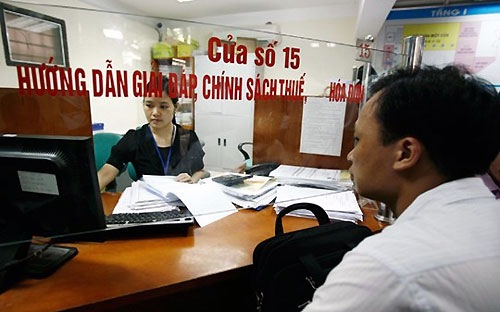What are accounting documents that have to be retained? This issue will be answered in Decree No. 174/2016/NĐ-CP of Vietnam’s Government on elaboration of some article of the Law on Accounting.

According to Clause 3 Article 41 of the Law on Accounting 2015 of Vietnam: “Accounting documents shall be retained for 12 months from the end of the annual accounting period or completion of accounting works.”
So, which accounting documents must be retained and how long is the record retention period?
According to Article 8 of the Decree No. 174/2016/NĐ-CP of Vietnam’s Government, the following accounting documents have to be retained:
1. Accounting records.
2. Detailed accounting books and overall accounting books.
3. Financial statements; budget statements; consolidated budget statements.
4. Other documents related to accounting works, including: contracts; administrative accounting reports; financial statements of completed projects and projects of national importance; reports on stocktaking and asset valuation; documents related to inspection and audit; records on destruction of accounting documents; decisions on addition of capital from profit, contributions to funds from profits; documents related to dissolution, bankruptcy, division, consolidation, merger, shutdown, conversion of the enterprise; documents related to receipt and use of funding or capital; documents related to taxes, fees, charges and other liabilities to the State; other documents.
The duration of retention of accounting documents is specified in Clause 5 Article 41 of the Law on Accounting 2015 of Vietnam as follows:
- For accounting documents serving management and operation of the accounting unit, including those not directly used for making accounting books and financial statements: at least 05 years;
- For accounting documents directly used for making accounting books, financial statements, accounting books, and annual financial statements: at least 10 years, unless otherwise prescribed by law;
- For historical accounting documents or those of economic, national security, or national defense importance: permanently.
Details of accounting documents to be retained for at least 5 years, accounting documents to be retained for at least 10 years or accounting documents to be permanently retained can be viewed in Articles 12, 13 and 14 of the Decree No. 174/2016/NĐ-CP of Vietnam’s Government.
When the retention period expires and no directions are given by competent authorities, accounting documents may be destroyed under a decision of the accounting unit’s legal representative. In which:
- An accounting unit must destroy its own accounting documents.
- The accounting unit may decide the destruction method such as burning, cutting, shredding, etc. as long as the destroyed documents can no longer be read.
Besides, penalties for violations against regulations on retention of accounting documents are specified in Article 15 of the Decree No. 41/2018/NĐ-CP of Vietnam’s Government, specifically as follows:
** A warning shall be imposed for one of the following violations:
- Archiving accounting documents 12 months after the specified deadline or later;
- Failure to arrange the archived accounting documents by fiscal year in chronological order.
** A fine ranging from VND 5.000.000 to VND 10.000.000 shall be imposed for one of the following violations:
- Failure to retain accounting documents in full;
- Damage or loss of accounting documents during the retention period;
- Using accounting documents against regulations during the retention period;
- Failure to inventory and sort accounting documents or to restore lost or damaged ones.
** A fine ranging from VND 10.000.000 to VND 20.000.000 shall be imposed for one of the following violations:
- Destroying accounting documents before the end of the retention period specified in the Law on Accounting but not serious enough for criminal prosecution;
- Failure to establish a destruction council, to apply the destruction methods correctly and to make a destruction report while destroying accounting documents.
The above are mandatory regulations that accountants must know to implement, in order to avoid causing legal risks to their accounting units. When a business has a financial legal risk, the chief accountant or the person in charge of accounting will most likely be involved, so accountants must be very careful in each work they are in charge of.
Le Hai
 Article table of contents
Article table of contents










.Medium.png)
.Medium.png)
.Medium.png)
.Medium.png)
